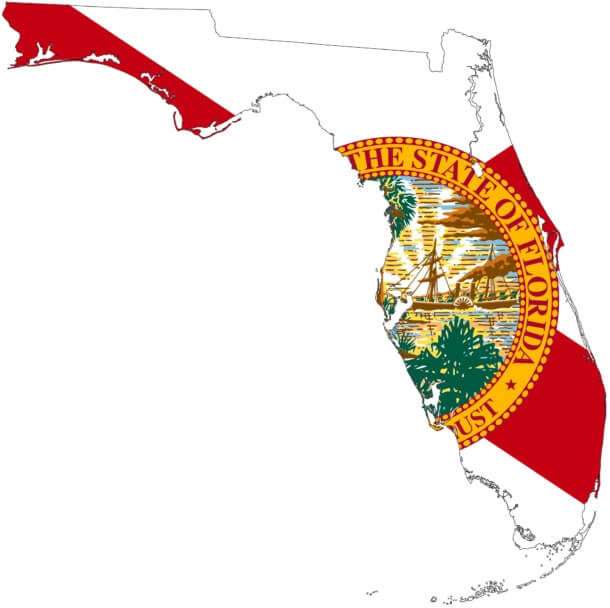by Ryan McMaken
Because of their physical size, large states are able to exercise more state-like power than geographically smaller states — and thus exercise a greater deal of control over residents. This is because larger states benefit from higher barriers to emigration than smaller states, thus allowing them to avoid one of the most significant barriers to expanding state power: the ability of residents to move away. Moreover, by virtue of the fact that the land area of the earth is more or less fixed, a small number of large states prevents the formation of a large number of small states.
The economic and political implications of this are explained by Ralph Raico in his seminal work “The European Miracle.” Raico explains how a large number of small states — and thus the relative ease of emigration — in pre-modern Europe laid the foundation for the relatively restrained state power that led to the rise of Europe as an economic powerhouse.
But, once states can extend their monopolies over vast expanses of land, linguistic areas, and cultural areas, emigration becomes difficult, and states are more easily able to increase their taxation and regulatory power over a population without danger of losing their tax base due to migration.
For example, a potential Russian immigrant must face the prospect of moving hundreds of miles from friends and family — and also learning a new language and a new culture — in order to emigrate. To a lesser extent, the same is true of the United States in which most potential destinations for an American emigrant would involve learning a new language and being distant from one’s family.
In the case of a small state, however, many of these cultural, linguistic, and distance-based barriers are greatly lessened. Were the United States actually composed of 50 truly independent political jurisdictions, residents would be able to move from region to region with less trouble in terms of adapting to local languages and culture. In the case of a move from Virginia to North Carolina, it would still be practical in many cases for emigrants to regularly return to visit friends and family with relative ease.
This would become all the more true were these jurisdictions reduced in size even more — as in this thought experiment — thus facilitating even greater ease of emigration from place to place.
RELATED: “If American Federalism Were like Swiss Federalism, There Would be 1,300 States” by Ryan McMaken
And, as states become even smaller than this, free movement between a large number of potential choices becomes easier and easier.
In a world of thousands of small states — at the size of ,say, a Swiss canton, residents would have multiple options for relocation within a small distance, thus reducing the monopoly power of each state.
In fact, we often seen this at work even in moderately decentralized states. In the US, Americans often move across city and county lines to avoid certain regulations, to lower their taxes, or to take advantage of better amenities. For example, when the city of Chicago imposed a number of high regulatory hurdles against Wal-Mart, the retail giant elected to simply move one block away from the Chicago city limits, thus depriving the city of tax revenues, but allowing Wal-Mart access to Chicago’s consumer population. If states in a confederation are appropriately small, “emigration” might be a matter of moving a few miles down the road, thus making the practical cost of emigration very low indeed.
A “State” of 50,000 People
Now imagine a world composed of tiny states the size of small cities. The smaller the better. But for the sake of providing concrete examples, let’s use the city of Arcadia, California.
The city is 11 square miles with 56,000 people. It borders at least five other cities. In other words, were the city an independent entity — we’ll call it the Republic of Arcadia — any resident need only move a few miles to change the government under which he or she lives.
Were the Republic of Arcadia (ROA) to impose a large tax increase, or a series of new onerous regulations, many residents would elect to move away. This situation would still impose costs on the new emigrants. They would perhaps need to sell their houses or businesses, which is costly in terms of time and money. By moving, they’re leaving their preferred place of residence — which they had demonstrated was in Arcadia. And, now they must live in a place that they would have rather not lived, all else being equal.
But, in many cases, the emigrants also might also be able to move without even needing new employment, and without being distant from friends and relative. They would have multiple choices of other jurisdictions with a nearly identical climate, language, and culture. Moreover, neighboring jurisdictions would likely be more than happy to accept the very people that ROA’s big tax hike is most likely to drive to emigrate: the most productive residents.
In this scenario, the Republic of Arcadia is still technically a state. It has a monopoly on the means of coercion within its territory. But when a state is as small as the Republic of Arcadia, how much power does it really wield? The answer is “not much.”
How Small States Are Similar to a Totally Privatized Society
Now, let’s add another element to this scenario. Let’s say that when emigrants from the Republic of Arcadia move to the Republic of Pasadena (ROP), they find that all residents are required to enter into a contractual relationship with the ROP government. The ROP will provide certain amenities while residents agree to pay “dues.” Residents agree to other restrictions as well, such as a 10-storey limit on all new construction. Should a resident conclude he no longer wishes to abide by these regulations, he must move out of the community.
Is the Republic of Pasadena a state? The answer is no since at this point the Republic of Pasadena is really just a private covenant community. In his book Democracy: The God that Failed, Hans-Hermann Hoppe describes a totally privatized community in these terms:
All land is privately owned, including all streets, rivers, airports, and harbors. With respect to some pieces of land, the property title may be unrestricted; that is, the owner is permitted to do whatever he pleases with his property as long as he does not physically damage the property of others. With respect to other territories, the property title may be more or less restricted. As is currently the case in some housing developments, the owner may be bound by contractual limitations on what he can do with his property (restrictive covenants, voluntary zoning), which might include residential rather than commercial use, no buildings more than four stories high, no sale or rent to unmarried couples, smokers, or Germans, for instance.
In other words, it functions like any association of private owners — such as those in a condominium community — which include common ownership of sidewalks, hallways, parking lots, the grounds around the buildings, and walls surrounding the complex. All members are required to pay fees to support the maintenance of these facilities. Those who refuse to pay the fees must move away.
Continue: Why a Small State Is More “Voluntary” than a Big One | Mises Wire


